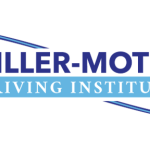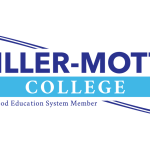Vocational schools, also known as trade schools or career colleges, offer focused training that prepares students to enter the workforce faster than traditional four-year college programs. These institutions are designed to equip students with practical, job-ready skills for specific industries like healthcare, skilled trades, or business. For students looking for a streamlined path into a new career, choosing the right vocational schoolis a critical first step.
Asking the right questions can help you make an informed decision. Below are six key questions to guide your search for a school that aligns with your goals, values, and expectations.
1. What Are My Interests and Career Goals?
Before you look at schools, it’s important to identify what kind of work excites you. Do you enjoy helping people? Solving technical problems? Working with your hands? Making a list of your interests and strengths can help clarify the industries and roles that may be a good fit.
Once you’ve narrowed down your interests, think about the kind of training that best supports your career goals. Whether you’re interested in becoming a medical billing specialist, a plumbing service technician, or a business administrator, vocational schools often offer programs tailored to these paths. Look for programs that align directly with your desired outcome.
2. What Programs Are Offered, and Do They Match My Career Path?
After identifying your goals, review the programs available at each school. Not all vocational schools offer the same specialties, so make sure your target career is represented.
For example, if you’re interested in healthcare administration, you may be drawn to Medical Billing and Coding or Health Information Technologyprograms. If your interests lie in the skilled trades, review whether the school offers training in HVAC, welding, or plumbing.
Also, look at what is covered in your desired program to ensure it’s preparing you for life after graduation. Some questions to ask when exploring program options include:
- Does it prepare you for certification?
- Does it focus on real-world applications?
- Does it offer support services?
Finding a program that matches your desired career outcomes is one of the most important parts of your decision.
3. Is the School Accredited and Does It Offer Program Transparency?
Accreditation is essential when choosing a vocational school. It means the institution has met specific standards for quality and integrity as evaluated by a recognized accrediting agency. Miller-Motte College is accredited by the Accrediting Commission of Career Schools and Colleges (ACCSC), a national accrediting agency recognized by the U.S. Department of Education.
Attending an accredited school can impact your ability to access financial aid and may influence your eligibility for certifications or further education. Look for schools that are transparent about their accreditation, curriculum, and outcomes. You can verify accreditation status through the U.S. Department of Educationor the Council for Higher Education Accreditation (CHEA).
While school reputation may vary, a strong accreditation status and clear program expectations are indicators that the school is committed to educational quality.
4. What Are the Costs and Financial Aid Options?
Vocational programs often cost less than traditional college degrees, but tuition still varies widely depending on program length, materials, and other fees. Review each school’s tuition and explore all your financial aid options.
Many schools offer access to federal financial aid through the Free Application for Federal Student Aid (FAFSA), grants, and institutional scholarships. Some may also provide tuition payment plans to make education more affordable.
Make sure you understand the full cost of the program, not just tuition, but also fees, books, equipment, and other supplies. Understanding the financial commitment ahead of time can help you plan and avoid surprises.
5. What Are Class Sizes and Student Support Like?
The size of your classes can affect how much personalized attention you receive. Smaller class sizes often lead to more instructor interaction, better feedback, and a stronger sense of connection.
Ask whether the school offers additional support services, such as tutoring, academic advising, and mentoring. These resources can make a big difference in your learning experience and help you succeed, especially if you’re returning to school after time away.
Hands-on learning is also a hallmark of vocational training. Be sure to ask how much of the program is spent in labs, simulations, or practical training environments.
6. Does the School Offer Career Services That Support Job Placement?
Although no school can guarantee a job, a strong career services departmentcan help you transition from training to employment more smoothly.
Career services may include resume workshops, mock interviews, job search coaching, and employer connections. These resources can give you an edge when applying for roles in your field of study.
Ask whether the school supports students post-graduation and how involved career services are throughout your time in the program. Knowing you have that extra layer of support can give you confidence as you approach your new career.
Use These Questions To Choose a Program That Works for You
Before making your final decision, consider reaching out to the admissions team at each school you’re interested in. Ask about upcoming info sessions, virtual tours, or open house events. These experiences can give you a better feel for the school environment, introduce you to faculty, and provide answers to specific questions about program structure, expectations, and outcomes.
It’s also helpful to create a checklist as you research. Compare program offerings, support services, scheduling flexibility, and learning formats, whether fully in-person, hybrid, or online. Evaluate how each program aligns with your learning style, work-life balance, and long-term career goals.
Choosing the right vocational school isn’t just about checking boxes. It’s about selecting a learning environment where you’ll feel supported and empowered to grow. With the right information and a plan in place, you can move forward confidently, knowing you’re investing in your future.
Choosing a vocational school is a big decision, but asking the right questions makes it easier to find a program that fits. By aligning your interests, goals, and financial situation with what each school offers, you can feel confident that you’re making an informed choice.
If you’re ready to explore your options, Miller-Motte College offers a range of vocational training programs across healthcare, business, technology, and skilled trades. Learn moreabout how MMC can support your path toward a new career.
Disclaimers: Information within this blog is for general information purposes only. Miller-Motte College does not assume or guarantee certification/licensures, specific job/career positions, income earning potential, or salary expectations based on the programs offered at Miller-Motte College. Career and program information statements in this blog do not guarantee that programs or other information mentioned are offered at Miller-Motte College.
Information within this blog is for general information purposes only. Miller-Motte does not assume or guarantee certification/licensures, specific job/career positions, income earning potential or salary expectations based on the programs offered at Miller-Motte. Career and program information statements in this blog do not guarantee that programs or other information mentioned are offered at Miller-Motte.




